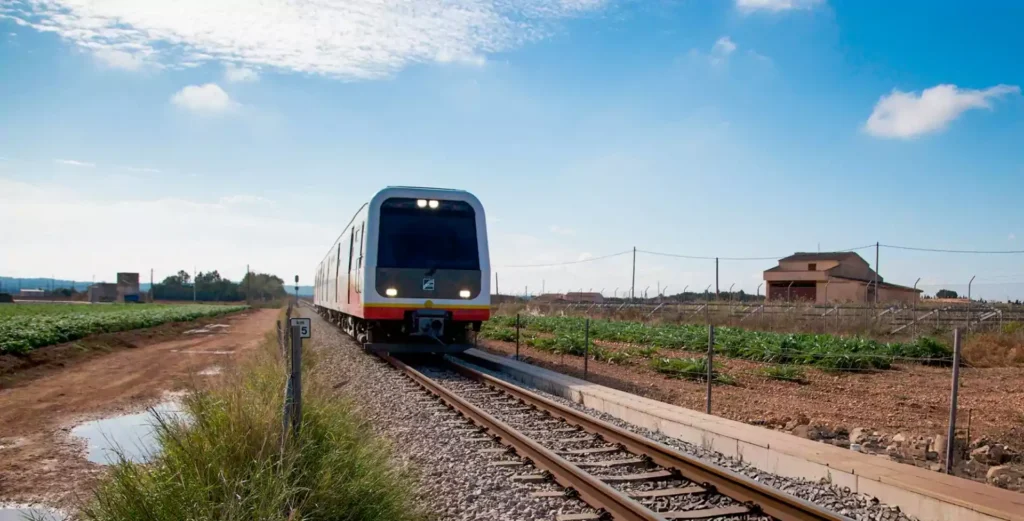The Unraveling Mystery Of The Victor Reynolds Train Accident: A Cautionary Tale
The Victor Reynolds train accident, a harrowing incident that occurred in Churchill County, Nevada, continues to grip the nation with its enigmatic details and unanswered questions. This tragedy, which unfolded in April 2024, has become emblematic of the broader challenges faced by the railway industry in maintaining safety standards while grappling with human error. As the investigation into the accident progresses, the story of Victor Reynolds emerges as a poignant reminder of the vulnerabilities inherent in modern transportation systems.
On a quiet evening in Churchill County, the tranquility was shattered when railroad workers stumbled upon a gruesome scene—Victor Reynolds, dismembered and lying beside the railroad tracks. The discovery sent shockwaves through the community, prompting an immediate response from local law enforcement. Deputy Ty Nelson, who arrived at the scene via train, played a pivotal role in managing the initial investigation. His commendation by Sheriff Richard Hickocks underscores the gravity of the situation and the bravery exhibited by those involved in the aftermath. However, the central question remains: did Victor Reynolds survive this harrowing encounter, or was his fate sealed the moment the train approached?
| Category | Details |
|---|---|
| Full Name | Victor M. Reynolds |
| Date of Birth | August 1963 (Wisconsin native) |
| Location at Time of Incident | Churchill County, Nevada (April 2024) |
| Marital Status | Recently separated from his wife |
| Occupation | Potentially retired police officer (Assistant Chief for the City of Magnolia Police Department) |
| Circumstances of Incident | Reported dismembered beside railroad tracks after being struck by a train; conflicting reports exist regarding survival |
| Location of Obituary | Lewis Funeral Home (for Victor M. Reynolds who passed away on May 20, 2024) |
| Related Incidents | Confusion exists with another Victor Reynolds from Nevada who was involved in a train accident and became a double amputee |
| Official Sources | National Transportation Safety Board (NTSB) |
The Victor Reynolds train accident is not merely an isolated incident but part of a larger narrative concerning railway safety. In recent years, the industry has faced mounting pressure to address systemic issues that contribute to accidents. From outdated infrastructure to inadequate safety protocols, these challenges have come under intense scrutiny. The National Transportation Safety Board (NTSB), tasked with investigating such incidents, has issued numerous recommendations aimed at enhancing safety standards. Yet, as the Victor Reynolds case illustrates, the implementation of these measures often lags behind the pace of technological advancement.
- Exploring Steve Howeys Career Movies Tv Shows
- Diddy Pardon Will Trump Grant It Amidst Trafficking Claims
The implications of this accident extend beyond the immediate tragedy. Victor Reynolds, a native of Wisconsin and a potentially retired police officer, symbolizes the intersection of personal and professional lives in the face of adversity. His recent separation from his wife adds another layer of complexity to the story, raising questions about the emotional and psychological factors that may have influenced his actions. As investigations continue, it becomes increasingly apparent that the circumstances surrounding the accident are far from straightforward.
The railway industry, long celebrated for its efficiency and reliability, finds itself at a crossroads. The Victor Reynolds train accident serves as a stark reminder of the need for vigilance and accountability. Industry leaders must confront the realities of an aging infrastructure and the challenges posed by rapid technological change. Moreover, they must address the human element, ensuring that employees and passengers alike are equipped with the knowledge and tools necessary to prevent such tragedies.
In the wake of this incident, comparisons have been drawn to other high-profile railway accidents. The 2013 Lac-Mégantic derailment in Quebec, which resulted in 47 fatalities, and the 2015 Amtrak derailment in Philadelphia, which claimed eight lives, highlight the devastating consequences of negligence and oversight. These incidents have prompted widespread calls for reform, with advocates urging policymakers to prioritize safety over profit margins. The Victor Reynolds case, while distinct in its particulars, resonates with these broader concerns, underscoring the urgent need for systemic change.
The societal impact of the Victor Reynolds train accident cannot be overstated. It has sparked a national conversation about the responsibilities of corporations and governments in safeguarding public welfare. In an era where transportation systems are increasingly intertwined with daily life, the failure to ensure safety standards has far-reaching consequences. Families, communities, and entire industries are affected by such incidents, underscoring the importance of fostering a culture of accountability and transparency.
Furthermore, the Victor Reynolds case has drawn attention to the psychological toll of railway accidents on both victims and responders. Deputy Ty Nelson, whose commendation reflects his bravery, is emblematic of the courage required to confront such harrowing situations. Yet, the emotional burden borne by those involved often goes unrecognized, highlighting the need for comprehensive support systems for first responders and trauma survivors.
As the investigation into the Victor Reynolds train accident unfolds, questions persist about the broader implications for the railway industry. The NTSB's findings will undoubtedly shape the future of transportation safety, influencing policy decisions and technological advancements. In the meantime, the story of Victor Reynolds serves as a poignant reminder of the human cost of negligence and the urgent need for reform.
The Victor Reynolds train accident is a cautionary tale that transcends its immediate circumstances. It challenges us to reconsider our assumptions about safety, accountability, and the human condition. In a world where technology continues to evolve at an unprecedented pace, it is imperative that we prioritize the well-being of those who depend on these systems. The legacy of Victor Reynolds, whether as a tragic figure or a catalyst for change, will undoubtedly shape the discourse surrounding railway safety for years to come.
In conclusion, the Victor Reynolds train accident is more than a headline-grabbing tragedy; it is a call to action. It demands that we confront the systemic issues that contribute to such incidents and commit to fostering a safer, more accountable transportation infrastructure. As we honor the memory of Victor Reynolds, we must also strive to ensure that his story is not repeated, but rather serves as a catalyst for meaningful change.
- Adamari Lpez Toni Costa A Look At Their Relationship After Separation
- Crown Royal Cocktails Best Mixers Delicious Recipes

10 Jaw Dropping Facts About the Victor Reynolds Train Accident and

Victor Reynolds Viral Video of Nevada Train Accident Survivor Sparks

Are they hiding updates on Victor Reynolds from the train accident?